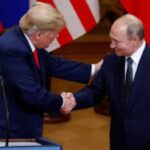The Pahalgam terror attack has dealt a fresh blow to regional stability—and now, Pakistan’s trade prospects face a chilling freeze.
According to Ajay Sahai, CEO of the Federation of Indian Export Organisations (FIEO), the fallout from this incident could further isolate Pakistan economically, especially in sectors where it quietly relies on Indian supplies.
Lives Interrupted by Politics—and Trade
For ordinary Pakistanis, this isn’t just about headlines or cross-border finger-pointing. It’s about delayed medicines, pricier imports, and a worsening cost of living. Especially in critical areas like pharmaceuticals and organic chemicals, Pakistan may soon feel the pinch.
These are not luxury items. We’re talking about drugs for chronic illnesses, essential industrial chemicals, and affordable medical goods. In times like these, trade isn’t just business—it’s survival.
A Fragile Link, Now Fractured
Trade between India and Pakistan has always been more political than practical. Since the Pulwama attack in 2019, formal trade ties have been nearly frozen. The Pahalgam attack only tightens the ice.
Sahai points out that Pakistan’s informal dependencies have persisted—via third-party exports or backdoor sourcing. But with tensions rising again, even those fragile trade threads could snap. Think tit-for-tat, but in the marketplace.
“Pakistan’s trade suffers because of political shocks—while Indian exports barely notice,” Sahai told Business Standard.
Also Read Global Shock After J&K Ambush: UN Security Council Draws a Red Line
Why India Matters More Than Pakistan Admits
There are three reasons why Pakistan has leaned on Indian imports, quietly if not officially:
- Price: Indian pharmaceuticals are cheaper than many global suppliers.
- Proximity: Faster deliveries, lower logistics costs.
- Quality: Indian drugs meet WHO and global regulatory standards.
Now, with these doors likely closing tighter, Pakistan will be forced to look elsewhere—mostly westward, at higher prices and longer wait times.
Informal Routes: Costlier, Riskier, Slower
As formal trade dwindles, informal routes will expand—but at a price. Goods routed through the UAE or Southeast Asia will be slower to arrive and heavier on the wallet. And let’s not forget the added risks: customs delays, inconsistent quality, and potential misuse.
In trade, as in diplomacy, trust is currency. And right now, the balance is negative.
India? Mostly Unbothered
Here’s the irony: while Pakistan may scramble to find alternatives, India’s export economy barely flinches. Trade with Pakistan accounts for a minuscule portion of India’s total exports. Pharmaceuticals and chemicals go out by the billion-dollar batch—to the US, EU, and Africa.
So, no, the hit won’t hurt India’s numbers. But it does leave behind a bitter aftertaste: we could have done more, together, if trust weren’t so easily broken.
Regional Reality Check
This isn’t just about economics. It’s about peace, or the lack of it. Trade builds ties, even if quiet ones. And when those break, so do opportunities for dialogue, understanding, and shared progress.
Until these tensions thaw—until both countries can talk beyond blame—the idea of “normal” trade remains a mirage.
Also Read India’s Indus Strategy: When Terror Crosses Borders, So Does the Water Payback




